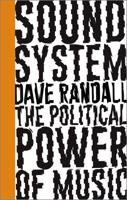Publisher's Synopsis
The largely Anglo-American industrial trade routes which dominate the popular music industry globally have been argued to be forms of cultural imperialism which appropriate, displace and transform authentic representations of local and indigenous cultures into packaged commercial products commodified for ethnically indeterminate but predominantly Anglocentric and Eurocentric markets. This text examines the cultural imperialist thesis through a study of the hybridity of local forms of pop, rock and rap music in four countries marginal to the "world music" phenomenon, two in Europe and two in the Southern Hemisphere. In the two European examples studied, the author identifies how local and regional "tribal" idiolects collapse into national oppositional cultural movements while in Oceania, conflicts between a post-colonial, Anglocentric cultural hegemony and heterogenous "tribal" forms of indigenous cultural expression come into play. The book shows how in all four countries, new vernacular cultures are being hybridized through the agency of music.









